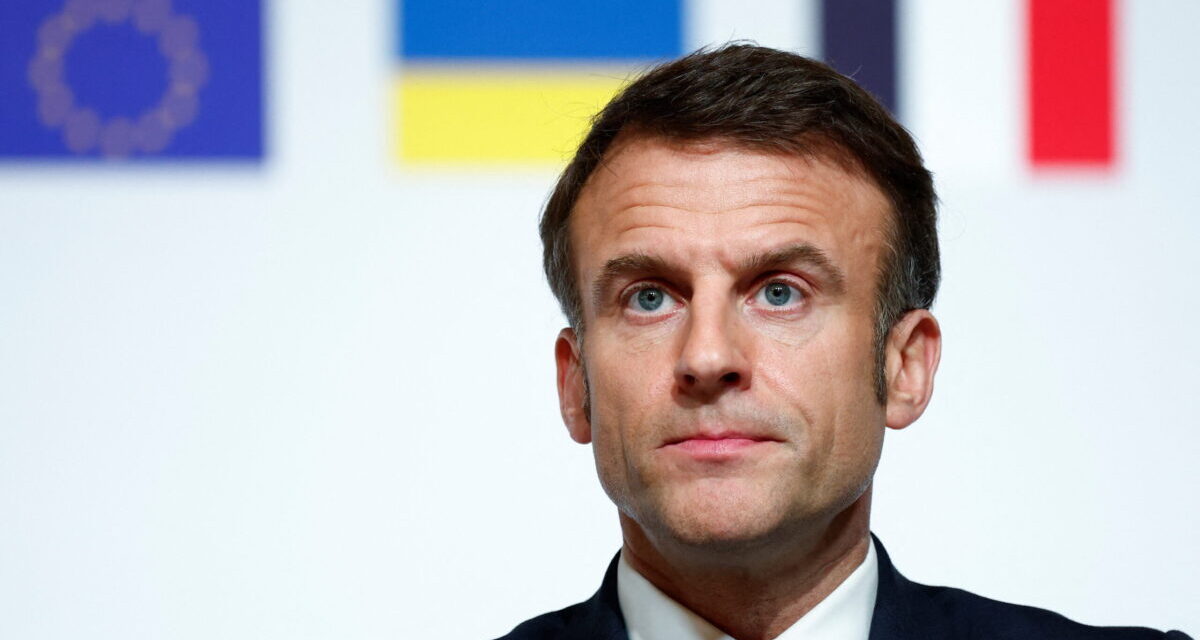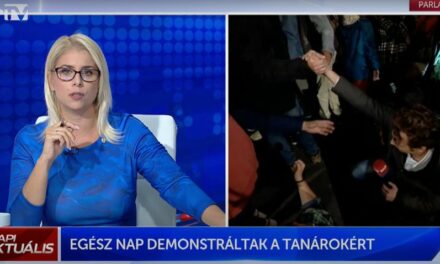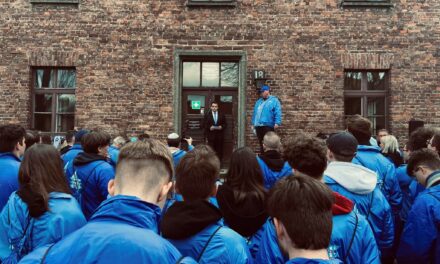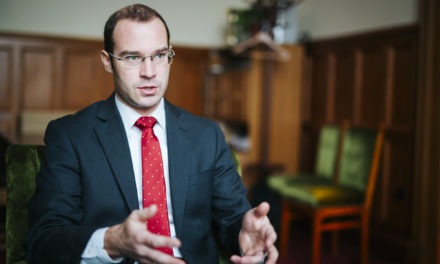The difference between the scenarios is that which one is further away, which one is closer, and which one means immediate world conflagration.
"Nothing can be ruled out" (regarding war), Emmanuel Macron said in February. According to the French president, France has the duty to prepare for all scenarios.
Le Figaro published five scenarios on how they plan to deploy French forces in Ukraine. All five can lead to clear world war dangers. The five scenarios are obviously more than simple speculation. Apparently, the Macrons have developed five different plans. And presumably they started preparing the French public in this regard. That French soldiers can die in a foreign country. That this could become a world war.
An unsettling summary of the scenarios based on Le Figaro's analysis:
Scenario 1: France installs factories in Ukraine
Scenario 2: French soldiers carry out demining, train Ukrainian soldiers and operate military equipment
Scenario 3: Defense of Odessa Scenario
4: French army creates a defense zone
Scenario 5: Clash, classic war fighting in the trenches
Le Figaro's speculations are obviously not speculations. They are trying to prepare the French people for deploying French soldiers in Ukraine. And ultimately to prepare for the world war provoked by Macron.
"Today, there is no consensus on the official and responsible sending of ground troops to Ukraine. But taking into account the dynamics, nothing should be ruled out," Macron declared in February. German Chancellor Olaf Scholz responded by saying that "not a single European or NATO soldier will be sent to Ukraine." "President Joe Biden has made it clear that the United States will not send troops to fight in Ukraine," added Adrienne Watson, spokeswoman for the US National Security Council. The same is true for the British and the Italians. Later, of course, the Germans showed themselves more and more willing to obey the French.
“Many countries in Europe, not least the most important ones, are fully in line with us,” Macron told Le Parisien on March 16, adding: “It is our duty to prepare for any scenario. It would be a mistake not to do so".
"If we want to send troops (to Ukraine), the President of the Republic, as the Commander-in-Chief of the Armed Forces, issues the order and must inform the Parliament no later than three days after the start of the intervention. Under Nicolas Sarkozy's 2008 constitutional amendment, Article 35 of the Constitution states that (after an intervention) a vote is required after four months to extend the operation. Emmanuel Macron would therefore have constitutional legitimacy for such a measure (to deploy French troops in Ukraine), but only if "the population would also accept this. This would not require bursting enthusiasm, but a certain degree of agreement would definitely be necessary," points out General Michel Yakovleff, a former high-ranking NATO official.
According to a survey conducted for Europe 1 and CNews television channels and the popular weekly newspaper Journal du Dimanche, 76% of French people are against sending soldiers. (Let's add: these are the three mediums where a clearly pro-peace opinion can appear in France. And occasionally, sometimes in Le Figaro.)
"Three questions should be clarified: first, what would the president say when more and more coffins were coming back (from Ukraine)?" One can imagine the effect it would have on his credibility and on French public opinion…; (secondly) if our soldiers were hit during a zone check, would we retaliate? Finally, it is not at all certain that the United States would let the French go into battle alone!” - believes a military source.
If a French military presence were to take place, it could take several forms and each would have different effects. According to a statement published in the leftist Le Monde by the Chief of Staff of the French Army, General Pierre Schill, they could deploy 20,000 soldiers in 30 days. This only allows for a limited presence.
Scenario 1: France sets up factories in Ukraine
In the first scenario, France would establish weapons factories in Ukraine, both for the production of weapons and their maintenance. The British company BAE Systems signed a contract for the production of small arms, and the German company Rheinmetall plans to build a factory to repair tanks. “French companies will establish partnerships with Ukrainian companies; the goal is to be able to manufacture spare parts on Ukrainian soil, and perhaps even ammunition in the future," French Minister of Defense Sébastien Lecornu explained in the March 8 program of the RMC radio station.
The French Army does have a structure for keeping equipment operational. However, like the UK's BAE and Germany's Rheinmetall, civilians are likely to be responsible for setting up the factories.
"I have great doubts about such a project. The insurance premiums would be so high that they would make the whole operation improbable," says General François Chauvancy, doctor of information and communication sciences, geopolitical consultant.
These factories, which would produce very high value-added equipment, would be a prime target for the Russian military. "In any case, it would take several months for the results of such a project to bear fruit," a military source stressed, adding that "factories in a nearby NATO member country may therefore be more efficient." And this would certainly have somewhat less "political impact". But even this possibility would bring the world war closer.
Scenario 2: (French) soldiers demining, training (Ukrainian) soldiers and operating military equipment
"There is also a way of military presence that does not mean participation in concrete war. I am thinking here of demining and the training of Ukrainian soldiers in their own country," added Defense Minister Sébastien Lecornu. "Ukrainian soldiers are already being trained in France and Poland by the French army. In this scenario, they would be trained on their own soil. It is technically feasible, but will this training accelerate the depreciation of the Russians?” asked a military source.
Operational military assistance is one of the specialties of the French army, it trains many partners, mostly in Africa.
“Any state can train its allies and even command officers to its headquarters. France is less committed in this regard. However, if soldiers were to die, politicians would have to justify the losses and injuries," notes General Chauvancy. Demining raises the same questions. France is able to send deminers, but it must politically justify the expected losses to the public.
In Hungarian: French soldiers would die for Ukraine, and in this case too, you can expect a Russian response.
"As for the operators of military equipment, if the equipment delivered to the site needs technical assistance, the trainers will probably already be on site," adds General Chauvancy. ""what the British and French [in the case of SCALP and Storm Shadow missiles, ed. comment] they will do in terms of targeting and facilitating target targeting, Germany cannot do that," stated Olaf Scholz at the beginning of March, revealing at the same time that experts from both countries are already present in Ukraine. "German military personnel must never, anywhere come into contact with targets that have been hit using this system," he added. In this scenario, France and Germany are not on the same wavelength - Le Figaro tries to reassure the French public with not too much conviction.
Scenario 3: Defense of Odessa
On February 21, Emmanuel Macron spoke about why the port of Odessa is important for him. "I will have to send guys to Odessa next year anyway," Le Monde quoted the head of state as saying. "Macron fears that grain prices will run wild and the conflict will spread to Moldova if Russia occupies the port of Odessa," explained the satirical weekly Le Canard Enchaîné the day before.
In 2019, the three Odessa ports handled 64.8 percent of all Ukrainian exports and 67 percent of imports, 91.4 million tons of goods passed through them. In addition, they enable the export of grain, which is essential to avoid global famine.
"In this scenario, in order to guarantee the ground and air security of Odessa, the French army would deploy troops in the area. At this stage, the Russians do not have the means to reach Odessa. However, they can increase the number of their missile strikes," says political analyst Nicolas Tenzer, lecturer at Siences Po University in Paris. The French presence “would result in a direct confrontation with the Russian army. It is a feasible plan, but it involves huge risks and a significant investment of resources. But it would certainly have a powerfully symbolic message (of implementing the plan),” says General Chauvancy. In practice, France "could deploy an air defense capability, such as a Mamba system," he explains.
Paris only has 8 such systems and no doubt more will be mobilized by the time of the Olympic Games. Let's face it, in the event of such a scenario, we would be confronted by Russian forces - says an analyst working for a large French military industrial group in fear of the clear threat of a world war.
In this case, too, the political power should justify the presence of soldiers in Ukraine to the public, as well as the number of deaths that will occur.
Scenario 4: The French army creates a defense zone
This scenario operates within the same constraints as the previous one, but on an even larger scale. In this scenario, France would deploy troops to Ukraine to relieve Ukrainian soldiers. "It is possible that they would end up in the liberated zones, for example the Belarusian border, Kherson or Kharkiv. In this way, a signal could be sent to the Russians to desist from advancing further. In addition, they could also protect the civilian areas regularly targeted by the Russian army," explains Nicolas Tenzer, a university lecturer at the far-left Sciences Po in Paris, who has argued in favor of the French military presence in Ukraine since the beginning of the invasion.
Creating a protected area in the heart of Ukraine is currently a wishful dream, writes Colonel Michel Goya in his blog article.
("Protected area", in French military terminology "sanctuarisation", increasingly means nuclear deterrence. In this reading, therefore, Colonel Goya envisions the installation of a nuclear military capability in Inner Ukraine.)
In this scenario, “(military) forces would be deployed to protect a specific area under Ukrainian authority, and a no-fly zone would also have to be established. However, France can only deploy two brigades to cover an 80-kilometer front, and it is also questionable how we would react if our troops were hit," points out General Chauvancy. The logistics of such a solution also raise serious questions. Le Monde revealed that due to Germany's (at least temporary) protest, the French tanks could only be transported to Romania by rail.
France would become a de facto belligerent in the conflict. Here, the world would be separated by days - from the Third World War.
Scenario 5: Clash in the Trenches
According to Le Figaro, this is the most improbable scenario. Or so he tries to imply. After all, this would no longer be the eve of it, but the Third World War itself. Immediately.
In this operation, French troops would fight on the side of the Ukrainians against the Russian army. It should also not be forgotten: France is a member of NATO.
By deploying armed forces against a common enemy, we would become part of the conflict, explains Julia Grignon, professor of law at Laval University in Quebec and researcher at Irsem, the École Militaire strategic research center. This would be equivalent to declaring war on Russia, explains an expert close to the Ministry of Defense.
"It would cost a lot politically. The President of the Republic would be politically forced to ask for a parliamentary vote, as the public would not understand why coffins are coming back en masse, while they were not even asked about it," General Chauvancy believes.
France can only deploy 20 thousand soldiers in 30 days. The deployment of the force would mean a serious logistical task, unprecedented since Operation Daguet; then 12,500 French soldiers were deployed. (We are talking about the Iraq-Kuwait war of 1990-91.) This would require a rapid increase in the production of ammunition and vehicles, and on land the two armies would have to work together with their different methods and language barriers.
But it is certain that a NATO country, France, would fight with the Russians in a foreign country; the immediate consequences are clear.
Fact: the difference between the five scenarios is that which one is more distant, which one is closer, and which one means an immediate world war.
Cover image: French President Emmanuel Macron
Source: MTI/EPA/Reuters pool/Gonzalo Fuentes













